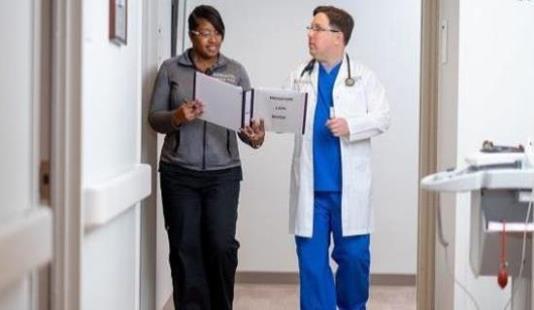Heart Care
High Blood Pressure

High blood pressure is a common condition in both men and women. High blood pressure is often defined clinically as "the force of blood moving against the walls of the arteries." This condition can weaken the heart and blood vessels, lead to a heart attack or stroke, and damage the kidneys and other organs. It is important to diagnose and treat this condition in its early stages.
Diagnosing High Blood Pressure
Patients may have no symptoms of high blood pressure, which is why this condition is sometimes called a "silent killer." In fact, we see many patients who do not have symptoms until the condition becomes severe. Some patients with severe high blood pressure may experience headaches, dizziness or vision issues. Most individuals are diagnosed with the disease during a routine physical with a primary care physician or an exam with a cardiologist using a blood pressure cuff.
Treating High Blood Pressure
At the University of Maryland St. Joseph Medical Center, we aim to lower blood pressure and maintain it for the long-term to reduce the likelihood of future complications. Our doctors develop an individualized treatment plan based on the patient's individual heart health and medical history.
Treatment may include:
- Lifestyle modifications such as increasing physical activity, dietary changes such as lowering salt intake, quitting smoking and maintaining a healthy weight
- Medications to lower blood pressure
